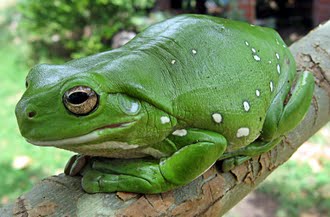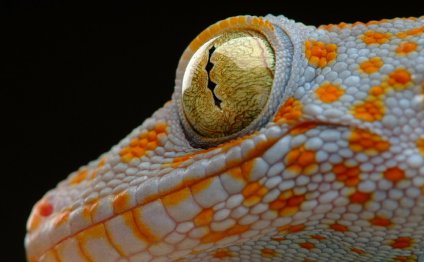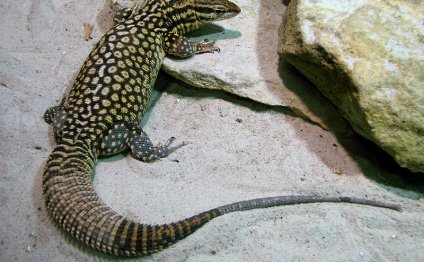
Exotic Lizard pet
Traveling with Pet Exotic Animals: Bird, Iguana, Turtle, Snake, Rabbit, Lizard, Monkey, Frog, Hamster, or Rat
According to the 2009/2010 National Pet Owners Survey, 5.3 million households have opted for a small animal for a pet instead of a dog or cat. Whether transferred, relocating, or vacationing, many people with small animals like to travel with their pet.
The majority of people who travel with a pet do so with a dog, as dogs are more generally welcomed by accommodations worldwide. The issue of cat dander and allergies keeps many hotels from wanting to accept cats, but there are plenty who do.
From the standpoint of taking a pet into another country or on an airline, then cats and ferrets generally fall under the same rules and level of acceptance as dogs.
For those pet owners who are traveling with a bird or an exotic pet, (not a cat, dog or ferret, ) it is important to consider both the regulations of your airline and your destination country. You will need a compliant airline pet carrier, whether traveling in the cabin or as checked baggage or cargo. If you are traveling in the cabin, the carrier will have to fit under the seat in front of you, have adequate ventilation, have a waterproof bottom, and be secure. If your pet is traveling as checked baggage or in cargo, you will need a carrier which is in accordance to the rules of the International Air Transport Association (IATA). It must be made of rigid material, securely assembled, be ventilated on all four sides, have no wheels, and have a spring-lock door that your pet cannot open.
Here are some rules for traveling with a nonstandard pet:
Birds: Most airlines that accept small pets in the cabin will also accept domestic birds, although finding a suitable bird carrier can be difficult. See an excellent carrier for small birds.
Traveling internationally with a bird requires research as every country seems to have a different rule and the rules change frequently. The issue of bird flu has made traveling with birds more difficult. However, there is one airline in the Middle East that only accepts hunting dogs and "falcons" in the cabin.
Rabbits: Your pet bunny rabbit probably won't be accepted in the cabin of the aircraft but put him in an IATA compliant pet crate and he will be able to travel as checked baggage. With the exception of the UK, most other countries have not established any rules for rabbits. If you have a certificate of good health for your domestic rabbit you should have no trouble entering most countries.
Hamsters: The airlines do not allow them for whatever reason. Most countries immigration rules do not even mention them. They fall into the same category as rabbits.
Turtles: There do not seem to be any bans on the import of turtles. Some airlines accept them inside the cabin as long as they are in a compliant carrier and are not removed from the carrier during the flight.
Reptiles: The airlines will not accept them either in the cabin or as checked baggage. It may be possible to ship the reptile as air cargo provided it has the proper container, but each airline has different rules. The same is true of hotels and other accommodations - reptiles are just not one of the better pets to take with you when you travel.
Monkeys: The import of monkeys varies depending on the type of monkey and the rules of the airline you are flying.
Rats & Mice: The airlines will not allow rats and mice in the cabin of the aircraft. You can ship rats and mice in cargo as long as it is in a proper container providing the country does not ban the import of that type of animal.
Frogs: We cannot find any regulations on the import or export of frogs. As long as it is kept in a compliant carrier, the airlines should not have a problem with them.
The important thing to remember is that each airline makes its own rules for the import of birds and exotic pets, and every country with the exception of the European Union (EU) countries, make their own rules regarding the various types of pets. The EU established one set of rules for all member countries except for the UK and Malta, which have more stringent requirements.
The source for reliable information is PetTravel.com through its immigration and airline sections that can be found in the directory on the left hand side of every page on our website.
RELATED VIDEO



Share this Post
Related posts
Colorful lizard
A very large species of chameleon that is endemic to forests in eastern and northern Madagascar. They reach up to 68 cm (27…
Read MorePet lizards food
There are many types of lizards and they range in size from very small geckos to large kimono dragons. For the purposes of…
Read More The Australian Green Tree Frog, simply Green Tree Frog in Australia, White's Tree Frog, or Dumpy Tree Frog or (Litoria caerulea) is a species of tree frog native to Australia and New Guinea, with introduced populations in New Zealand and the United States. The...
The Australian Green Tree Frog, simply Green Tree Frog in Australia, White's Tree Frog, or Dumpy Tree Frog or (Litoria caerulea) is a species of tree frog native to Australia and New Guinea, with introduced populations in New Zealand and the United States. The...












